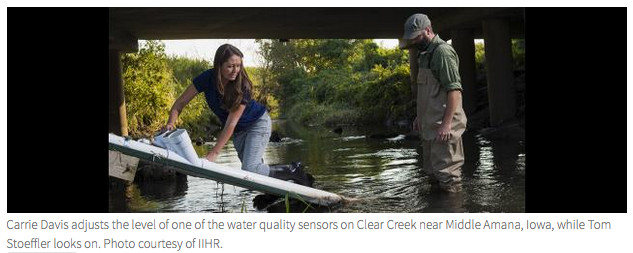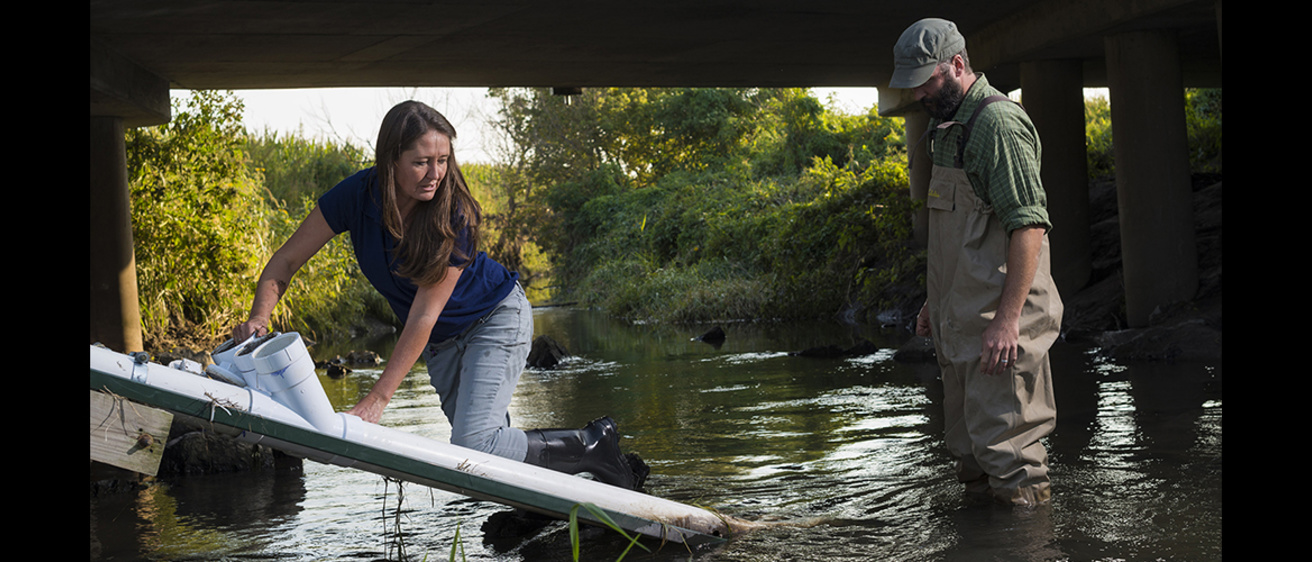By: Andrea Zeek
UI Strategic Communication

Residents in Washington, Iowa, soon will have a more robust tool to help them improve local water quality, thanks to experts at the University of Iowa’s IIHR–Hydroscience and Engineering.
As part of a project led by the Washington County Soil & Water Conservation District, IIHR will install a water quality sensor July 27 near Washington that will measure nitrate concentrations in West Fork Crooked Creek. The data collected will be available in real time on the Iowa Water Quality Information System website.
“We are absolutely ecstatic,” says Sarah Ham, a soil conservationist with the Washington County conservation district. “It’s going to give us a lot of good information and will be a neat tool to have.”
Ham says work to monitor local water quality began after West Fork Crooked Creek was included on the Iowa Department of Natural Resources’ impaired waters list. A few landowners in Washington County began collecting nitrate samples and sending them off to labs for evaluation. Washington residents also were able to build on the state’s nutrient reduction strategy to bolster their water quality improvement efforts.
The new water quality sensor from IIHR will make monitoring faster and easier for local residents, Ham says.
Washington County Soil & Water Conservation District officials recently toured IIHR’s facility on the UI campus and learned about the work researchers do for Iowa. Ham says they are looking forward to this new partnership with the UI.
“We told them about our watershed project down here and our nutrient reduction strategy,” she says. “We were so impressed with what they were doing (at IIHR), and we made a lot of great contacts.”
Local watershed partners will use data collected from the water quality sensor on West Fork Crooked Creek to inform planning and decision-making and to continue effective implementation of soil and water conservation practices.
